We’re sorry, this site is currently experiencing technical difficulties. Please try again in a few moments. Exception: request blocked


How to Choose the Best Thailand Tourist Visa

Visiting Thailand is a pretty straightforward endeavor for most tourists, especially those from countries with strong passports.
The two options chosen by most travelers are either to obtain the standard Single Entry Thailand Tourist Visa (TR) beforehand online or from a Thai embassy or to opt for visa-exempt entry to the Kingdom.
Most tourists visiting Thailand, however, don’t realize more (and perhaps better) options exist. Options that are potentially more suited to their travel plans and desired length of stay.
This article will provide an overview of all the different types of tourist visas in Thailand, their requirements, and the pros and cons of each. So you can choose the best tourist visa for your upcoming trip to Thailand .
Types of Thailand Tourist Visas
1. visa exemption.
By far the easiest option for tourists heading to Thailand is Visa Exemption entry. This allows travelers from certain countries to enter Thailand for 30 days without obtaining an actual tourist visa beforehand.
Put simply, provided you are a traveler from one of the countries approved for visa-exempt entry (most countries), you can just show up at the airport and get stamped into Thailand. Visa exempt entry is available to passport holders of the United States, Australia, Canada, most European countries, etc.
To enter Thailand under the Visa Exemption, travelers must have a valid passport, a return ticket, and sufficient funds to support themselves during their stay. Like all the other visas on this list, it can be extended for up to 30 more days, giving tourists a total of 60 days in the country.
Pros: The Visa Exemption is the easiest and quickest way to enter Thailand. It requires no application process and is available to travelers from many countries.
Cons: The shortest length of stay among the three most popular Thailand tourist visa types. Visa-exemption can also only be used twice during a calendar year to visit Thailand.
2. Single Entry Tourist Visa (TR)
The next most common option is the Single Entry Tourist Visa. This visa allows travelers to stay in Thailand for up to 60 days (with a 30-day extension available).
To obtain the standard Thailand Tourist Visa, travelers must apply at a Thai embassy or consulate in their home country or another foreign country. Thailand now accepts online applications for all visa types including Single Entry Tourist Visas. This tourist visa costs around $60 or 2,000 THB depending on the embassy or consulate you apply at.
The requirements for the Single Entry Tourist Visa include a valid passport, a completed visa application form, a passport-sized photo, proof of accommodation, proof of onward travel, and proof of financial means to support their stay in Thailand.
Pros: Allows for a longer stay in Thailand than visa-exempt entry and is a relatively cheap option. Also, the standard Tourist Visa is granted in the vast majority of cases and only takes 5 to 10 working days to process.
Cons: The Tourist Visa requires an application process, which means preparing and submitting documents and waiting for it to process. This is more time-consuming than visa-exempt entry.
3. Multiple-Entry Tourist Visa (METV)
The Thailand Multiple Entry Tourist Visa is a visa type that is far too often overlooked by travelers coming to Thailand. In fact, many tourists don’t even know it exists. In short, Thailand’s Multiple Entry Tourist Visa allows tourists to visit Thailand for up to roughly nine months if timed correctly.
Let us explain.
Basically, the METV visa allows travelers to enter and exit Thailand multiple times within a 6-month time frame. Each time the visitor enters Thailand within the 6-month window, they can stay for up to 60 days and extend that up to 30 days. Unlike other Thai tourist visas, however, the 6 month window of entering/exiting Thailand starts immediately the day it is issued rather than the day you enter the country.
So to clarify, upon the date of the visa issuance, the traveler holds access to Thailand for multiple entries for 6 months. Up until the last day of that 6-month period, the traveler can re-enter Thailand and stay for 60 days plus 30 days with an extension at immigration.
So 6 months + 60 days + 30 days = nearly 9 months (if timed correctly).
This type of visa is available for all of the same countries that have access to the Single Entry Tourist Visa for Thailand and requires many of the same documents. On the downside, though, it costs roughly $200 or 6,000 THB depending on the embassy or consulate and applicants must show evidence of much more funds in the bank.
Pros: The METV visa is the best tourist visa option for two types of travelers.
- Travelers who want to enter and exit Thailand as they wish (great for those on long trips throughout the entirety of Southeast Asia).
- Visitors who want to stay in Thailand for a long period of time without having to do visa runs or re-apply for a new tourist visa every few months.
Cons: On the flip side, the Multiple Entry Tourist Visa is a stricter and costlier option that requires more documents and higher proof of funds in the bank.
4. Thai Visa on Arrival (VOA)
Even though it’s not one of the best options in our opinion, we will still mention the Thai Visa on Arrival. This option allows travelers to obtain a tourist visa for Thailand on arrival at the airport.
This tourist visa gives visitors a 30-day duration of stay (previously 15-day) in Thailand and can be extended 7 days. To be eligible for this visa, you must hold a passport from one of the 19 eligible countries and have a return ticket, proof of sufficient funds, and a confirmed hotel reservation.
Pros: The Thai Visa on Arrival provides a flexible option for travelers who may not have time to apply for a visa prior to their Thailand trip. Additionally, the process of obtaining the Visa on Arrival is simple and straightforward considering it can be done when landing at the Thai airport. But that’s about it.
Cons: If we’re being completely honest, we almost never recommend getting a Visa on Arrival in Thailand due to the fact that Visa-Exemption entry already exists for many of the countries eligible for a Visa on Arrival. Visa-exempt entry allows for a longer duration of stay and doesn’t require any application process. It’s a win-win.
Picking the Right Thai Tourist Visa for Your Travel Plans
Ultimately, choosing the right tourist visa for Thailand largely comes down to your travel plans and desires.
Do you want to stay in Thailand for a short time and don’t want the headache of an application process? Go the visa-exempt route.
Do you want to move to Thailand long-term and really experience the daily life and culture in a more meaningful way ? Opt for the Multiple Entry Tourist Visa.
Or do you want a balance of both? Then maybe the Standard Tourist Visa will be more your cup of tea.
Whatever the case, your next trip to Thailand is sure to be a hit!
Related: How to Obtain a Thai Education Visa, Explained
Things to do ↗
Find the best activities, restaurants, and nightlife in Thailand.
Destinations ↗
Explore the endless destinations Thailand has to offer.
Stay in Thailand ↗
Learn how to extend your stay in the Land of Smiles.
Get personalized trip plans to Thailand that fit your budget and interests
Thailand explained.
Privacy Policy
Terms of Service

- Change to white mode
- Change to normal mode
- Change to text yellow mode

How to apply for a tourist visa in Thailand

Thailand is one of the top destinations for tourists from around the world. There are major destinations that attract visitors in Bangkok, Phuket, Chiang Mai, and Hua Hin, to name only a few.
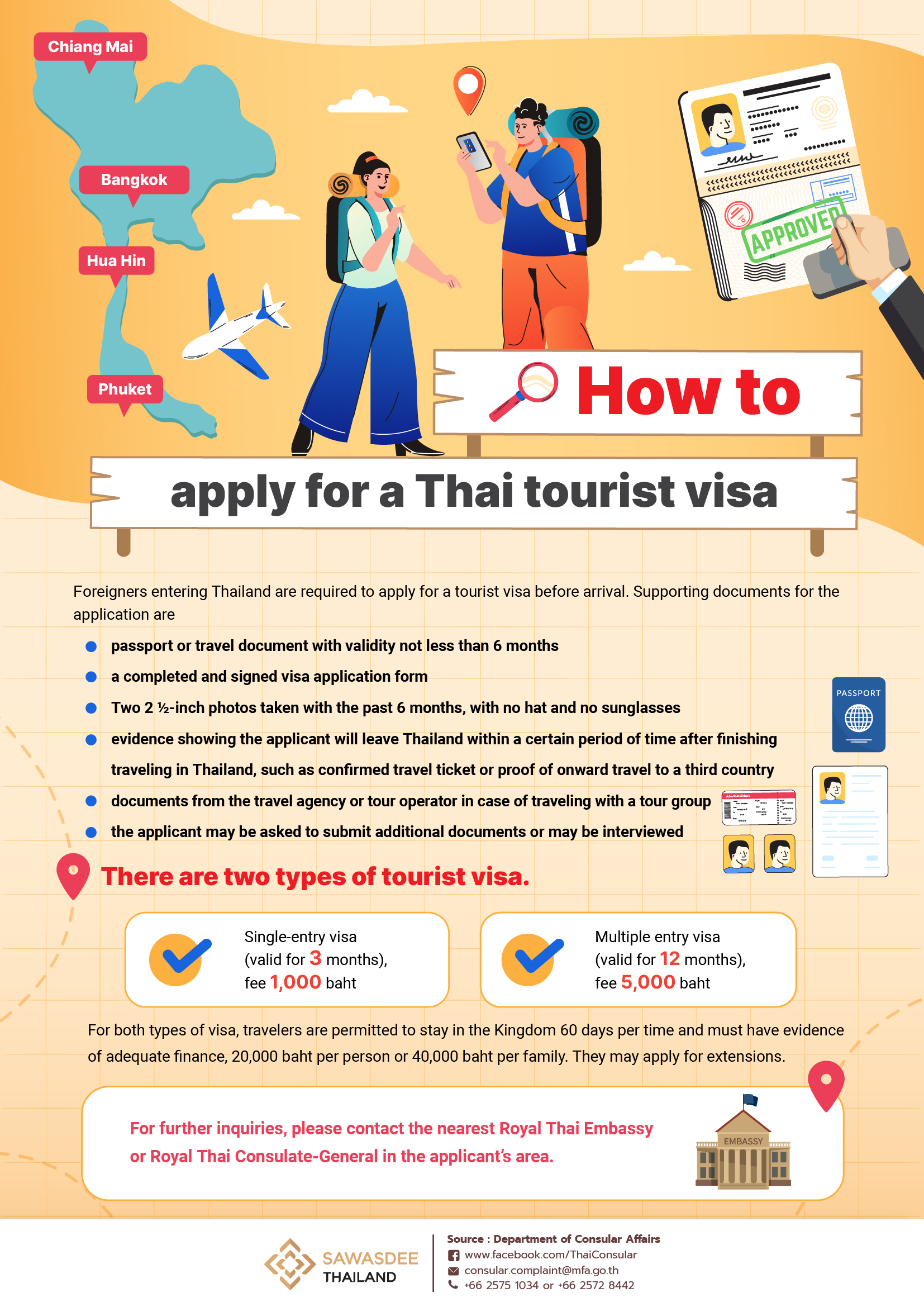
Foreigners entering Thailand are required to apply for a tourist visa. Supporting documents for the application are the following:
Passport or travel document with validity of not less than 6 months;
- A completed and signed visa application form
- Two 2½-inch photos taken with in the past 6 months, with no hat and no sunglasses;
- Evidence showing the applicant will leave Thailand within a certain period of time after finishing traveling in Thailand, such as a confirmed travel ticket or proof of onward travel to a third country;
- Documents from a travel agency or tour operator, in the case of traveling with a tour group;
- The applicant may be asked to submit additional documents or may be interviewed.
There are 2 types of tourist visa, namely single entry visa (valid for 3 months), with a fee of 1,000 baht, and multiple entry visa (valid for 12 months), with a fee of 5,000 baht. For both types of visa, upon arrival, travelers are permitted to stay in the Kingdom 60 days per time and must have evidence of adequate finances: 20,000 baht for an individual or 40,000 baht per family.
For further inquiries, applicants should please contact the nearest Royal Thai Embassy or Royal Thai Consulate-General in the their area.
Source : Ministry of Foreign Affairs Tel : +66 2203-5000
Most Popular
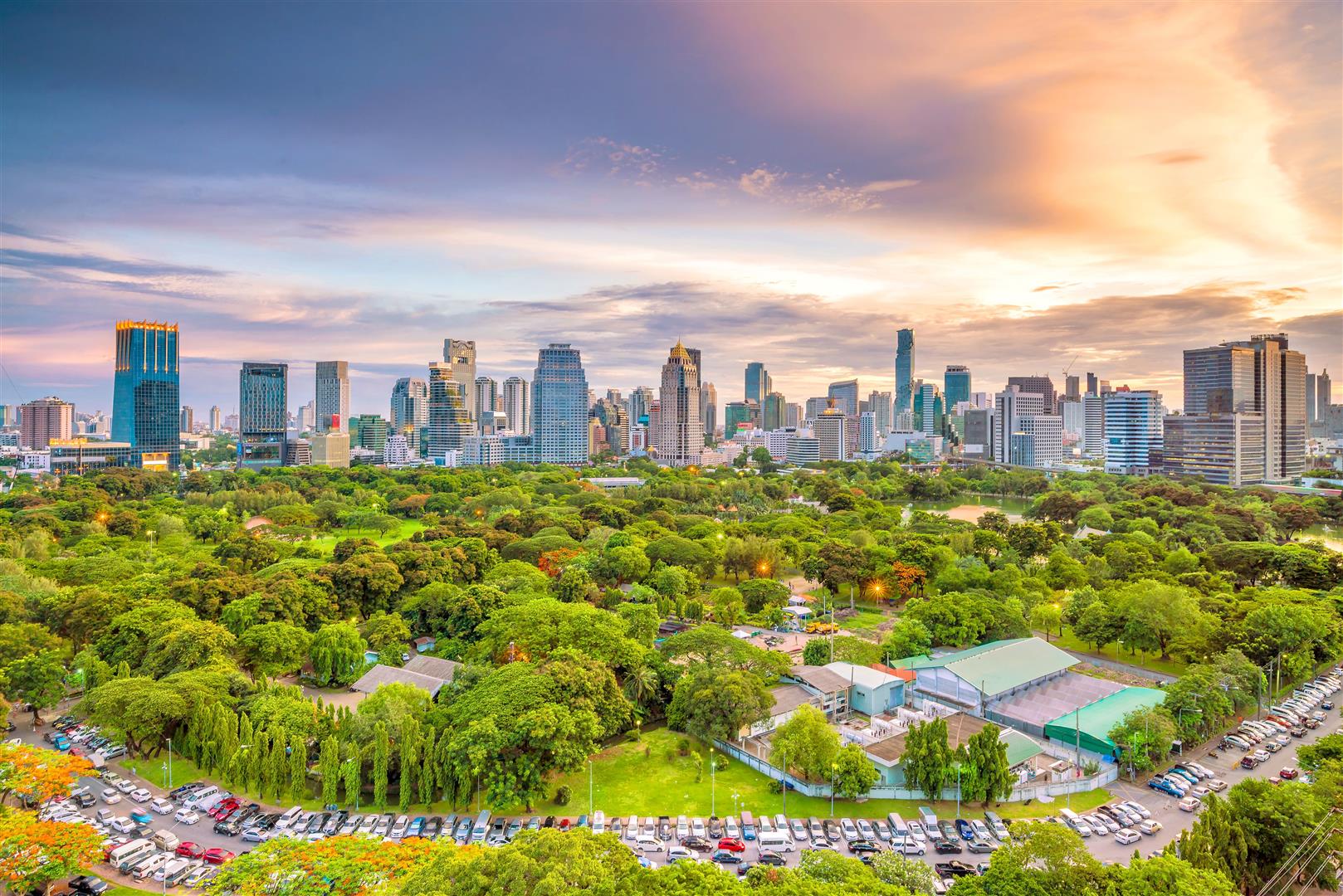
Bangkok Public Park Guide

Special Economic Zone (SEZ) Investment Guide
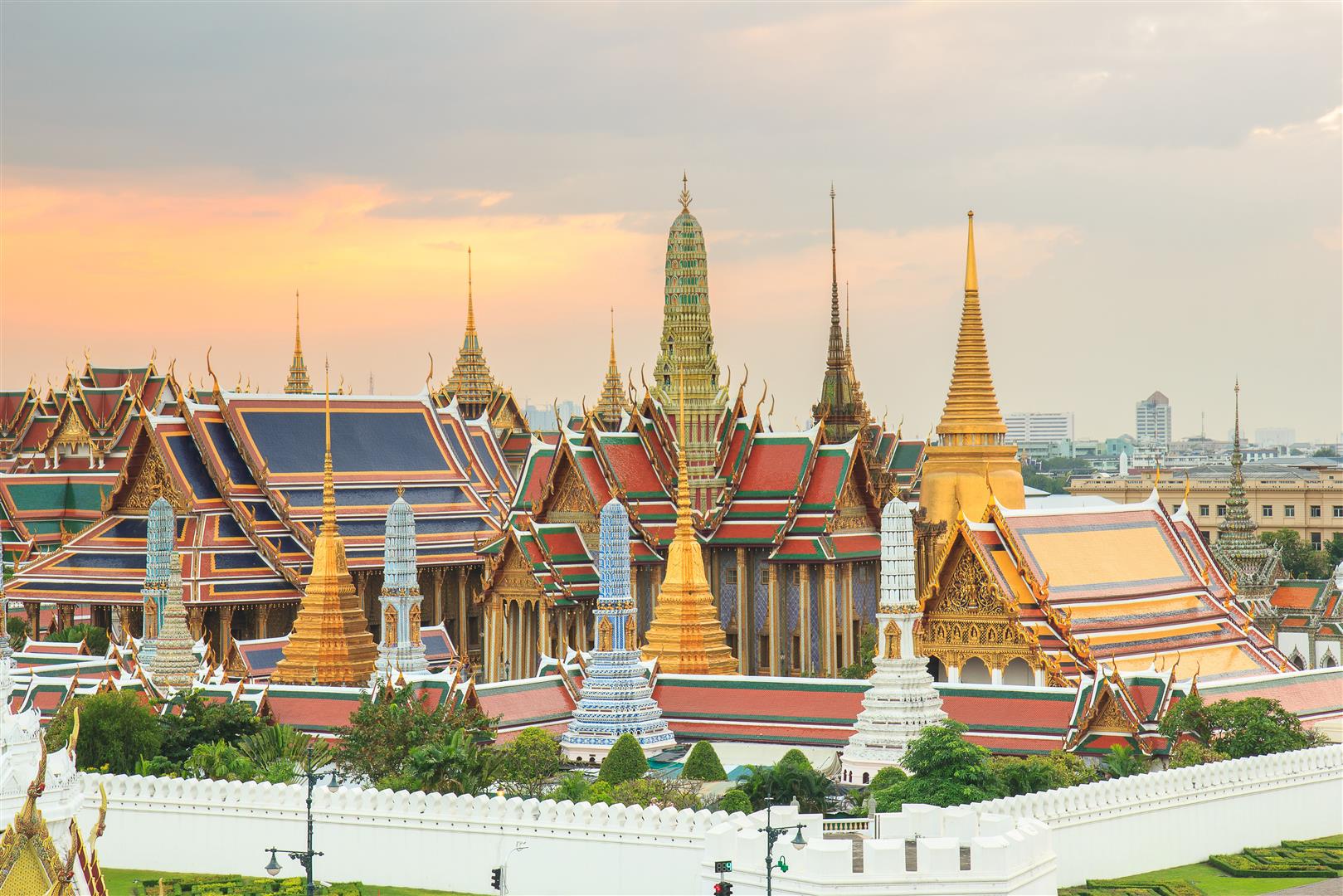
Bangkok Cultural and Nature Travel Guide

EEC Investment Guide
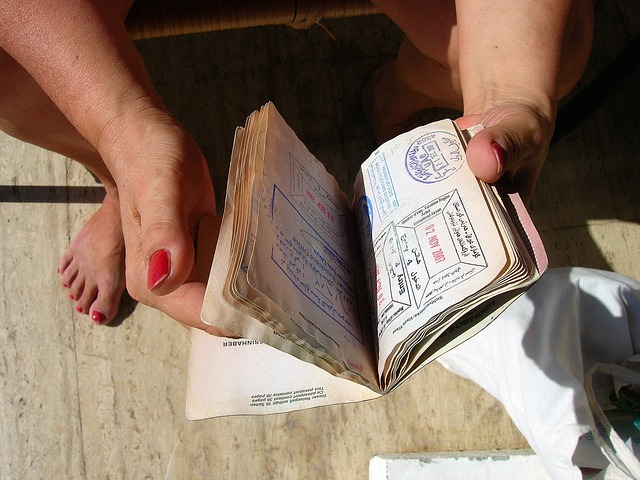
New Passport Guide
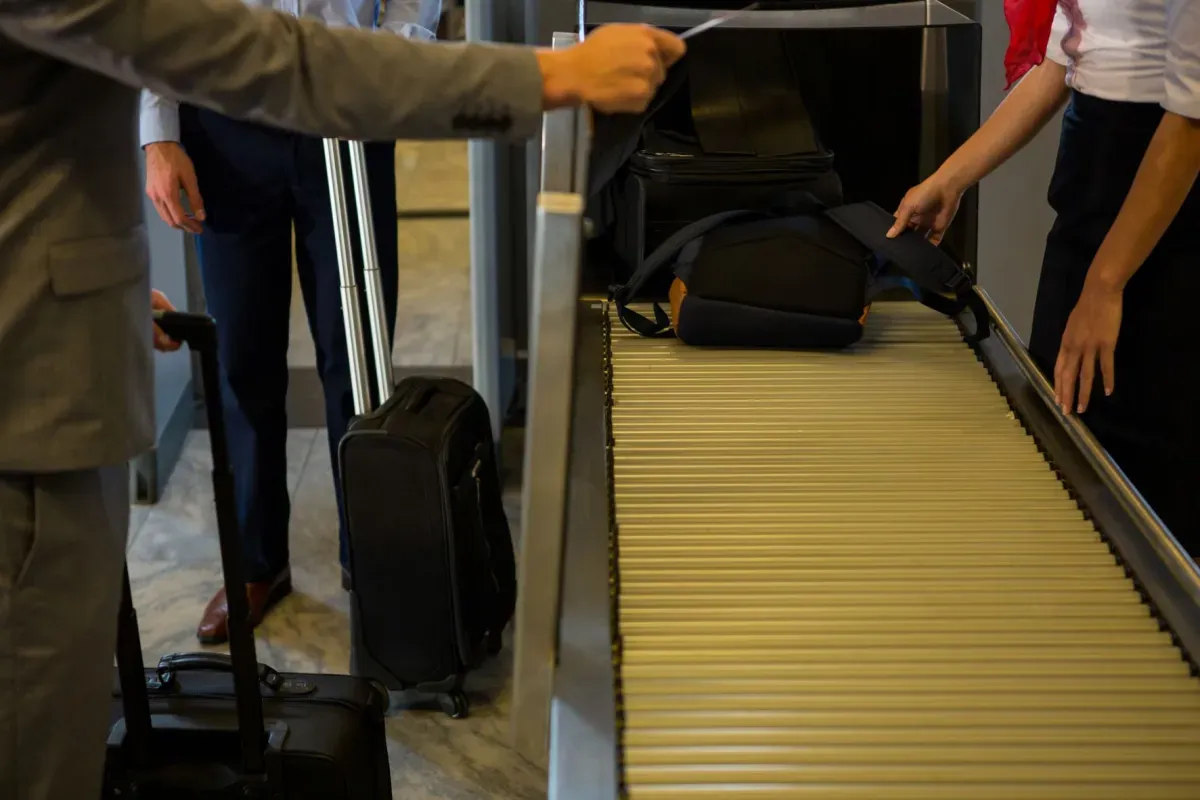
Kingdom of Thailand’s importing prohibited – restricted checklist items
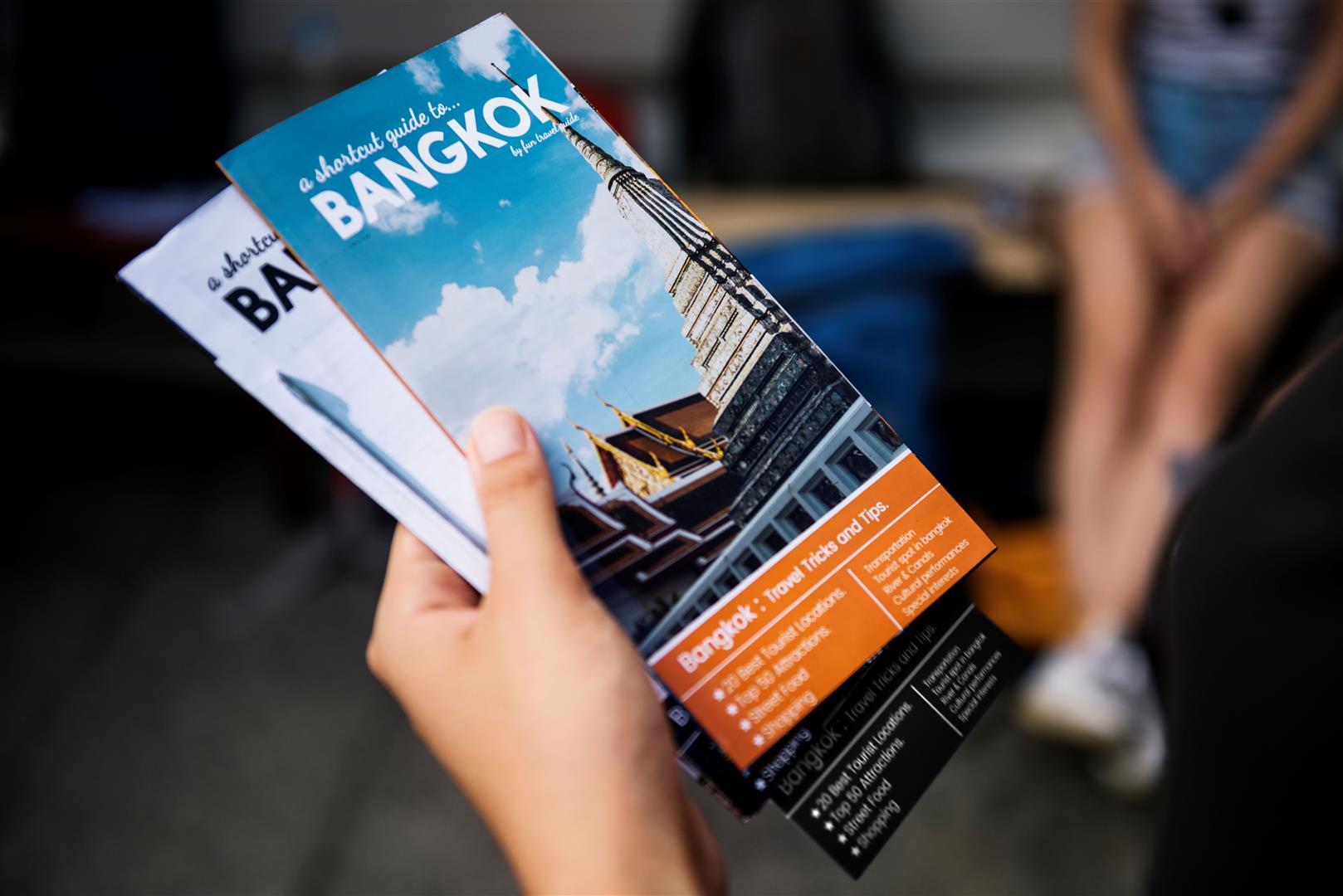
Guide for Dangers in the City That Tourists Should Be Aware Of

Report this post
Do you want to report "What the longest you can stay in Thailand on tourist visa?"
What the longest you can stay in Thailand on tourist visa?

Click to see more content like this in the Tourist visas for thailand Category
Planning a trip to Thailand and wondering how long you can stay on a tourist visa? Discover the maximum duration and extension options for an unforgettable stay. Read more to get the answers.
Are you dreaming of visiting Thailand for a long vacation? This beautiful country is known for its amazing beaches, delicious food, and friendly people. But before you pack your bags, it's essential to know the longest you can stay in Thailand on a tourist visa.
Tourist Visas in Thailand
There are different types of visas available for people visiting Thailand. The most common one is the Tourist Visa, which allows you to stay in the country for a certain period of time. The length of your stay depends on the type of tourist visa you get.
Visa Exemption / Visa on Arrival: If you are from one of the 64 countries that have a visa exemption agreement with Thailand, you can enter the country without a visa for 30 days if you arrive by air, or 15 days if you arrive by land. This can be extended once for an additional 30 days at an immigration office in Thailand.
Single-Entry Tourist Visa: This visa allows you to stay in Thailand for 60 days. You can apply for this visa at a Thai embassy or consulate in your home country. Once you are in Thailand, you can extend this visa for another 30 days at an immigration office.
Multiple-Entry Tourist Visa: This visa lets you enter Thailand multiple times within a six-month period. Each time you enter, you can stay for up to 60 days. Just like the single-entry tourist visa, each stay can be extended for an additional 30 days at an immigration office in Thailand.
Longest Stay on a Tourist Visa
So, what's the longest you can stay in Thailand on a tourist visa? If you have a multiple-entry tourist visa, you can stay in Thailand for a total of 180 days (6 months) within the validity of the visa. This is achieved by staying for 60 days each time you enter the country and extending each stay for an additional 30 days.
It's important to note that you have to leave Thailand and re-enter to start a new 60-day stay. Also, remember that staying longer than your visa allows is illegal and can lead to fines, imprisonment, or being banned from entering Thailand in the future.
Need Help Planning Your Trip to Thailand?
If you want to enjoy your vacation in Thailand without worrying about visa issues, we are here to help! Our team of travel consultants specializes in helping people plan their trips to Thailand. We can guide you on the best visa options for your needs and help you with the application process. Contact us at Strictly Thailand for a consultation and let us make your dream vacation in Thailand a reality!

Tourist Visas for Thailand
Questions and answers for Tourist visas to Thailand
How Long Can You Stay In Thailand As A Tourist? A Visa Guide

If you’re wondering how long can you stay in Thailand as a tourist, then what you’re really wondering about is the various visa options currently available in the much-loved Land of Smiles. We’ll cut right to the chase – there are quite a few! Yep, border admin in the land of peanut-topped noodles and gold-glimmering Buddhist temples can be a confusing business.
Don’t worry, though, because we’re here to help. We’ve slung together this ultimate guide to the most popular visa types and documents that travelers will be asked to present in Bangkok. It runs through some of the most common and sought-after entry passes on offer to folks jetting across to Bangkok, Chiang Mai, Phuket , et al.
It’s a mixed bag because different visas are intended for different types of travelers. For example, you won’t be able to apply for a working visa in Thailand if you’re coming simply to see the temples of BKK and laze on the beaches. Similarly, you can’t enter as a tourist and then start teaching English. On top of that, certain visa types are only available to certain nationalities, which complicates matters a whole lot more.
Table of Contents
Visa exemption (also called the visa waiver) – 30 days

There’s a whopping great big list of 64 countries that are currently eligible for Thailand’s Visa Exemption. Whether you’re from the Pyrenees of Andorra or the old towns of Poland, the Andes of Peru or the deserts of Oman, you’ll be able to rely on this tried-and-tested way of getting into the Land of Smiles. Oh, and both the United Kingdom and the United States are on the list, too. Nice.
The reason it’s such a gift to be included is that the Visa Exemption is by far the simplest way to score some time in Thailand. It offers 30 straight days of entry. It’s 100% gratis – yep, totally free to get. Oh, and it requires virtually zero admin – there’s no need to pre-apply or fill in any special forms or visit the Thai embassy before you hop on the plane.
Getting a Visa Exemption is a very simple process. Simply rock up to passport control once you’ve touched down in Thailand, fill out one of the visa-waiver forms, queue, get your stamp, and bingo – you’re in. It’s only possible to do this at international airports and international border and boat crossings. You can get a Visa Exemption as many times as you like each year, unless you’re returning to Thailand via land or sea, when it’s capped at twice annually.
The 30-day Visa Exemption is also strictly only to be used for tourist purposes. There are reports that Thai border authorities have become much more attentive to enforcing that in recent years, as it’s thought the waiver was widely abused by digital nomad travelers returning to Thailand month after month.
Visa on Arrival (often confused with the visa waiver) – 15 days

If you happen to be from a country that’s not on the long list that’s eligible for Thailand’s Visa Exemption, all is not lost. There’s another type of visa you can score without having to do any irritating pre-applications: The Visa on Arrival (VOA). Sadly, this one only offers just 15 days in the Land of Smiles, so you’ll need to be a little quicker about your tours of the Grand Palace and jaunts to the shimmering islands of the gulf!
There are currently nationalities of 19 countries that can use the VOA, including India, Fiji, Georgia, Uzbekistan, and Mexico. The list changes quite often though, with new countries added and dropped almost every year, so be sure to check that you’re still a-okay just before traveling.
There are some pretty tight regulations when it comes to the Visa on Arrival in Thailand. You’ll need to be able to show proof of a return flight out of the country a maximum of 15 days ahead of time. You will also need an address of residency in Thailand (most people give the address of their first hotel). Oh, and you will also need proof of travel funds to the value of at least 10,000 THB per person (that’s around $300).
Single Entry Tourist Visa – 60 days

The Single Entry Tourist Visa (SETV) is a great option if you’re wondering how long you can stay in Thailand as a tourist and want more than the usual 30 days that the Visa Exemption offers. That’s because this one runs for a tan-topping 60 days in all. That’s two whole months in the Land of Smiles, which we think is the perfect amount of time to tour pretty much all the highlights, from the white-glinting beaches of Koh Lipe in the south all the way to the hippy bars of Pai in the north.
It will require a little extra in the way of administration though. First off, the SETV cannot be gotten at the border when you arrive. You have to apply for it before you even go to Thailand. That means a visit to a Thai embassy or consulate somewhere else in the world (usually your country of residence, but it doesn’t have to be) to present all the necessary documentation, including a photocopy of passport ID pages, flight information about your trip to Thailand, details of where you’ll be staying in Thailand when you arrive, and three visa-sized photographs.
There’s also a fee involved. It’s $40 for the SETV, or around 1,000 THB. That’s payable at the point of application during your embassy visit, so be sure to take the cash along (in whatever the local currency is) when you go for your interview. It usually takes two days to process this sort of visa, but some consulate locations (London, LA) offer a same-day service.
The SETV might offer 60 days in Thailand, which is great, but that comes with strings attached. You can’t leave the country and return. To do that, you’ll need to apply for a Multiple Entry Tourist Visa (see below). If you do happen to jet off somewhere else before the visa runs its course, then you will forfeit the rest of the days you’re allowed and, of course, the associated fee that you paid for them. The SETV visa also needs to be used within three months of being issued, so there’s no point in applying yonks in advance.
Multiple Entry Tourist Visa – 6 months!

How long can you stay in Thailand as a tourist if you really want to explore every nook and cranny of the Land of Smiles? How about six whole months? Yep, a whopping half a year lazing on the sands of Koh Lanta, splashing in the sparkling seas of Samui , glugging Chang in downtown Bangkok, and hiking the hills around Kanchanaburi. Sound fantastic, eh?
Sadly, as with most things Thai visa, it’s not quite that simple. The Multiple Entry Tourist Visa (METV) might also be known as the 6-month visa, but it’s not actually six months of uninterrupted entry. Instead, you should look at it as more of a pass to get as many 60-day visas as you like within a six-month period.
So, say you jet into Thailand just in time for the end of the rainy season in Koh Phi Phi on the 1 st of November. You can stay 60 days from the date you touchdown, but then you will need to jet out again. The good thing is you can return right away, on the very same day if you’d like, back to Phi Phi’s beaches but also into any other international port (land, sea, or air). When you do that, you’ll get another 60-day stamp, no questions asked.
The process to get the METV is very similar to the process to get the SETV (see above). You’ll need to attend an interview at a Thai consulate outside of the country, take all the necessary documents, and pay a fee – it’s $175 for this longer-stay option. Perhaps the biggest negative with the Multiple Entry Visa is that it starts from the moment it’s issued, so your six months of entry stamps are getting less and less the moment you walk out of the Thai consulate.
Extending my visa in Thailand
It’s possible to get a visa extension for virtually all types of Thai visas. However, it’s not without hassle. You need to attend an immigration office in person before the date of expiry on your visa, take along photographs, identification documents, and, more often than not, answer some prying questions about the reason you’re looking to extend. On top of that, there’s a fee and it’s not cheap – extensions on Visa Exemptions, for example, cost up to 1,900 THB ($56). That’s more than a 60-day visa in the first place!
Overstaying my visa in Thailand
Overstaying any sort of visa is considered a serious offense in Thailand. However, that doesn’t stop it from happening, and we always hear stories of folk who fall foul of immigration when they come to jet out of the country and the dates don’t match up.
The general rule is that you’ll get a fine of 500 THB ($15) per day for every day you’ve overstayed up to a maximum of 20,000 THB ($600). After that, you could be deported from the country and banned from re-entry for several years. That also doesn’t look good at all on your passport record, so could impact your ability to apply for visas in other countries around the globe. Yikes!
Our advice? Don’t even think about doing this!
How long can you stay in Thailand as a tourist? A quick conclusion

There’s no easy answer here. Lengths of potential stays in this sun-kissed land in the heart of Southeast Asia can vary from just a few hours on a flight stopover to years on end for those visiting as expats and professionals.
Different visas are better suited to different types of travelers, so it’s always worth doing a little research on the documentation that’s best for you before you jet off to the shimmering beaches of Phuket or the jungle-covered hills of Chiang Mai.
Remember, though, not all travelers from all destinations will be eligible for all types of visas. There can actually be quite a few hoops to jump through and requirements to satisfy, particularly if you’re keen to score entry to Thailand for longer periods.
As a general rule, how long can you stay in Thailand as a tourist ranges from up to 30 days on a Visa Exemption to around six months on the METV, although that does require you to leave and return to the country at least every 60 days.
For more than 11 years, Joe has worked as a freelance travel writer. His writing and explorations have brought him to various locations, including the colonial towns of Mexico, the bustling chowks of Mumbai, and the majestic Southern Alps of New Zealand. When he's not crafting his next epic blog post on the top Greek islands or French ski resorts, he can often be found engaging in his top two hobbies of surfing and hiking.
Related posts

Koh Phangan Itinerary: The Ultimate Two-Day Island Trip

Koh Phangan or Phuket? Which Thai Island is Better?

Is Koh Tao Worth Visiting? 9 Reasons Why You Must Visit
Winter is here! Check out the winter wonderlands at these 5 amazing winter destinations in Montana
- Travel Destinations
How Many Times Can I Extend My Tourist Visa In Thailand?
Published: November 8, 2023
Modified: December 28, 2023
by Sharyl Eades
- Plan Your Trip
- Travel Guide
Introduction
Welcome to the vibrant and captivating kingdom of Thailand, a popular destination for tourists from around the world. Known for its rich cultural heritage, stunning landscapes, and warm hospitality, Thailand offers a wide array of experiences that cater to every traveler’s interests. While visiting Thailand, many tourists may find themselves wanting to extend their stay beyond the initial period allowed by their tourist visa.
In this article, we will explore the rules and regulations surrounding tourist visa extensions in Thailand. We will provide you with a comprehensive guide on how many times you can extend your tourist visa, the procedures involved, and the limitations you need to be aware of.
It is essential to note that while we aim to provide accurate and up-to-date information, visa rules and regulations may change over time. Therefore, it is always advisable to consult with the Thai immigration authority or seek professional advice to ensure accurate and current information.
Whether you wish to explore Thailand’s pristine beaches, immerse yourself in its bustling cities, or delve into its rich cultural heritage, understanding the possibilities and limitations of tourist visa extensions will help you make the most of your stay in the Land of Smiles.
Overview of Tourist Visa in Thailand
Before diving into the intricacies of tourist visa extensions, let’s first understand the basics of the tourist visa in Thailand. The tourist visa is designed for individuals who wish to visit Thailand for tourism purposes or to see friends and family. It allows visitors to enter the country and stay for a specified period, typically ranging from 30 to 60 days.
There are different types of tourist visas available, depending on the purpose and length of your stay. The most common types include the Single Entry Tourist Visa (SETV) and the Multiple Entry Tourist Visa (METV).
The Single Entry Tourist Visa (SETV) allows you to enter Thailand once and stay for a designated period. Once you leave the country, the visa becomes invalid, and you will need to apply for a new visa if you wish to return.
The Multiple Entry Tourist Visa (METV) is a more flexible option, allowing you to enter and exit Thailand multiple times within a specified period. This type of visa is particularly useful for those who plan to explore neighboring countries while based in Thailand.
It is important to note that the length of stay granted on a tourist visa is at the discretion of the Thai immigration authorities. The initial period is typically 30 days, but it can vary depending on the nationality of the visitor and the immigration officer’s decision.
Now that we have a general understanding of the tourist visa, let’s explore how many times you can extend your stay in Thailand.
Initial Length of Tourist Visa
When you first enter Thailand on a tourist visa, the initial length of stay granted is usually 30 days. However, it is important to check the specific requirements for your nationality, as some countries may receive a longer initial stay of up to 60 days.
During this initial period, you are allowed to explore the country, indulge in its diverse cuisine, visit its majestic temples, and soak up the vibrant atmosphere. Many tourists choose to stay in popular tourist destinations such as Bangkok, Chiang Mai, Phuket, or Pattaya.
It’s worth noting that you are not eligible to work or engage in any paid employment during your stay on a tourist visa. The visa is strictly for tourism purposes and does not permit any form of employment, business activities, or long-term stays in the country.
If you are planning to stay in Thailand for more than 30 days, you have the option to apply for a tourist visa extension.
Next, let’s explore the process and limitations of extending your tourist visa in Thailand.
First Extension of Tourist Visa
If you wish to stay in Thailand beyond the initial 30-day period granted on your tourist visa, you have the option to apply for a visa extension. The first extension allows you to extend your stay for an additional 30 days, giving you a total of 60 days in the country.
To apply for a visa extension, you will need to visit the nearest Immigration Office in Thailand. Bring along your passport, a completed visa extension application form, a recent passport-sized photograph, and the applicable fee (typically 1,900 Thai Baht).
During the visa extension process, you may be required to provide supporting documents such as proof of accommodation, proof of financial means, and an outbound flight ticket to demonstrate your intention to leave Thailand within the extended period.
It is important to note that visa extension requirements and procedures may differ slightly depending on the specific Immigration Office you visit. Therefore, it is advisable to check the official website of the Thai Immigration Bureau or consult with an immigration lawyer to ensure you have the correct and up-to-date information.
Once you have submitted your application, the Immigration Office will process your request. The extension is typically granted on the same day, and you will receive a stamp in your passport indicating the new departure date.
It is essential to keep track of your visa expiry date as overstaying your visa can result in fines, penalties, or possible deportation. If you wish to stay in Thailand beyond the 60-day mark, you will need to consider applying for further visa extensions.
Now that we have covered the first extension of the tourist visa, let’s explore the possibilities for additional extensions.
Second Extension of Tourist Visa
If you desire to stay in Thailand beyond the initial 60-day period granted by the first visa extension, you may apply for a second visa extension. The second extension allows you to extend your stay for an additional 30 days, giving you a total of 90 days in the country.
The process for the second visa extension is similar to the first. You will need to visit the Immigration Office, bring the required documents (passport, completed application form, photograph, and fee), and provide any additional supporting documents if requested.
It is important to note that the authority to grant visa extensions lies with the discretion of the Thai immigration authorities. They may choose to grant the extension for the requested period or a shorter period based on their assessment of your circumstances.
As with the first extension, it is crucial to keep track of your visa expiry date and ensure you do not overstay your visa. Overstaying can result in fines, penalties, or potential problems in future visa applications.
If you require an even longer stay in Thailand, you may consider applying for additional visa extensions. However, it is important to understand that tourist visa extensions have limitations, and multiple extensions are not guaranteed.
Now that we have covered the second extension of the tourist visa, let’s explore the possibilities and limitations for further extensions.
Third Extension of Tourist Visa
If you wish to stay in Thailand beyond the initial 90-day period granted by the first and second visa extensions, you may consider applying for a third visa extension. The third extension allows you to extend your stay for an additional 30 days, giving you a total of 120 days in the country.
Similar to the previous visa extensions, you will need to visit the nearest Immigration Office, complete the application form, provide the necessary documents (passport, photograph, and fee), and possibly submit additional supporting documents if required.
It is essential to note that obtaining a third visa extension is subject to the discretion of the Thai immigration authorities. They will consider factors such as your travel history, financial stability, and the purpose of your stay in Thailand before granting the extension.
It is important to keep in mind that visa extensions are not guaranteed, and the immigration authorities may choose to grant a shorter extension or deny the request altogether. Therefore, it is advisable to have a backup plan and be prepared to make alternative arrangements if needed.
Throughout your stay in Thailand, it is crucial to comply with the immigration rules and regulations. Overstaying your visa can result in significant penalties, deportation, or even being blacklisted from re-entering the country in the future.
Now that we have discussed the third extension of the tourist visa, let’s explore the possibilities and limitations for further extensions.
Fourth Extension of Tourist Visa
If you require a longer stay in Thailand beyond the initial 120-day period granted by the first, second, and third visa extensions, you may consider applying for a fourth visa extension. The fourth extension allows you to extend your stay for an additional 30 days, giving you a total of 150 days in the country.
Applying for a fourth visa extension follows the same process as the previous extensions. You will need to visit the Immigration Office, complete the application form, provide the necessary documents (passport, photograph, and fee), and potentially submit additional supporting documents if requested.
As with previous extensions, the approval of the fourth extension is at the discretion of the Thai immigration authorities. They will consider various factors before deciding on the extension, including your travel history, financial stability, and the purpose of your stay in Thailand.
It is important to note that the Thai immigration authorities may grant a shorter extension or deny the request altogether. Therefore, it is advisable to have a contingency plan in place and be prepared for alternative arrangements if needed.
Overstaying your visa is strictly prohibited in Thailand and can result in severe penalties, deportation, or even being banned from re-entering the country in the future. It is crucial to stay within the authorized stay period granted by the visa extensions and abide by all immigration rules and regulations.
Now that we have discussed the possibility of a fourth visa extension, let’s delve into the options and limitations for further extensions, if applicable.

Fifth Extension of Tourist Visa
If you require a further extension of your stay in Thailand beyond the initial 150-day period granted by the first, second, third, and fourth visa extensions, you may explore the option of applying for a fifth visa extension. The fifth extension allows you to extend your stay for an additional 30 days, giving you a total of 180 days in the country.
Similar to the previous visa extensions, the process for applying for a fifth extension involves visiting the Immigration Office, completing the application form, submitting the necessary documents (such as your passport, photograph, and fee), and potentially providing additional supporting documents based on the discretion of the immigration authorities.
It is crucial to understand that the decision to grant a fifth extension lies solely with the Thai immigration authorities. They will review your application and take into consideration factors such as your travel history, financial stability, and the purpose of your stay in Thailand before making a decision.
It is pertinent to note that visa extensions beyond the fifth extension are generally not granted for tourist visas. If you require a longer stay in Thailand, you may need to explore other visa options, such as a non-immigrant visa or a long-term visa category that aligns with your purpose of stay.
Once again, it is essential to comply with the immigration regulations and avoid overstaying your visa. Overstaying can result in significant penalties, deportation, or potential difficulties in future visa applications.
Now that we have discussed the possibility of a fifth visa extension, it is important to understand that this represents the limit for tourist visa extensions. If you require additional time in Thailand, it is advisable to investigate other visa categories that suit your specific needs.
Additional Extension Options
If you require an even longer stay in Thailand and have exhausted the possibilities for tourist visa extensions, there are alternative visa options to consider. These visa options offer different durations of stay and may be more suitable for specific purposes.
1. Non-Immigrant Visa: The Non-Immigrant Visa is designed for individuals who wish to stay in Thailand for purposes such as employment, business, education, or retirement. This visa category allows for longer stays and may provide more flexibility in terms of work permits and residency in the country.
2. Education Visa: If you plan to study in Thailand, you can apply for an Education Visa. This visa allows you to stay in the country for the duration of your course or program of study. It requires enrollment in an accredited educational institution in Thailand.
3. Retirement Visa: If you are 50 years or older and meet the financial requirements, you may be eligible for a Retirement Visa. This visa allows for a long-term stay in Thailand for retirees who wish to enjoy the country’s relaxed and affordable lifestyle.
4. Business Visa: The Business Visa is suitable for individuals who plan to conduct business activities in Thailand. It permits longer stays and allows for the possibility of obtaining a work permit to engage in professional activities.
It is important to consult with the Thai embassy or consulate in your home country or seek professional advice to determine the most suitable visa option based on your specific circumstances and intended duration of stay in Thailand.
Remember to adhere to the visa regulations and ensure timely application for the appropriate visa to avoid any legal complications during your stay in Thailand.
Now that we have explored additional extension options beyond tourist visa extensions, it is crucial to assess your specific needs and choose the best visa option accordingly.
Considerations and Limitations
While there are options for extending your stay in Thailand through visa extensions or alternative visa categories, it is important to be aware of certain considerations and limitations.
1. Discretion of Immigration Authorities: The approval of visa extensions and other visa categories is at the discretion of the Thai immigration authorities. They have the right to grant extensions for shorter durations or deny the request altogether based on their assessment of your circumstances and compliance with immigration rules.
2. Overstaying Penalties: It is crucial to adhere to the authorized period of stay granted through visa extensions or other visa categories. Overstaying your visa can result in fines, penalties, deportation, and potential difficulties in future visa applications. It is advisable to keep track of your visa expiry date and plan your departure or visa renewal accordingly.
3. Supporting Documentation: When applying for visa extensions or alternative visa categories, you may be required to provide supporting documents such as proof of accommodation, proof of financial means, and an outbound flight ticket. It is important to prepare these documents in advance and ensure they meet the requirements set by the immigration authorities.
4. Limited Number of Extensions: Tourist visa extensions in Thailand typically have a limit. While the specific number of extensions can vary, it is important to note that there is a maximum number of extensions allowed. Beyond this point, you may need to explore other visa options that align with your intended stay and purpose in Thailand.
5. Consult with Professionals: Visa rules and regulations can change, and it is important to stay updated. Consulting with immigration lawyers or professional visa agencies can provide you with the most accurate and current information regarding visa requirements, processes, and limitations.
Understanding these considerations and limitations will help you plan your stay in Thailand effectively and ensure that you comply with immigration regulations throughout your time in the country.
Now that we have explored the considerations and limitations, let’s conclude our discussion on visa extensions in Thailand.
In conclusion, Thailand offers a range of options for extending your stay beyond the initial period granted by a tourist visa. Understanding the process and limitations of visa extensions can help you make the most of your time in the country and avoid any legal complications.
Through multiple visa extensions, it is possible to extend your stay in Thailand up to 180 days, depending on the discretion of the Thai immigration authorities. However, it is important to note that there is a limit to the number of extensions available for tourist visas.
If you require a longer stay in Thailand, it is advisable to explore alternative visa options such as non-immigrant visas, education visas, retirement visas, or business visas. These visa categories provide longer stays and cater to specific purposes such as study, work, retirement, or business activities.
When applying for visa extensions or other visa categories, it is important to prepare the necessary documents, comply with immigration regulations, and be aware of any potential penalties or consequences of overstaying your visa.
Consulting with professionals, such as immigration lawyers or visa agencies, can provide you with accurate and up-to-date information regarding visa requirements, processes, and limitations.
Thailand offers a wealth of experiences, and understanding the possibilities for extending your stay can enhance your exploration of this captivating country. Whether you are drawn to the bustling streets of Bangkok, the tranquil beaches of Phuket, or the cultural wonders of Chiang Mai, having a clear understanding of visa extensions will enable you to make the most of your time in the Land of Smiles.

- Privacy Overview
- Strictly Necessary Cookies
This website uses cookies so that we can provide you with the best user experience possible. Cookie information is stored in your browser and performs functions such as recognising you when you return to our website and helping our team to understand which sections of the website you find most interesting and useful.
Strictly Necessary Cookie should be enabled at all times so that we can save your preferences for cookie settings.
If you disable this cookie, we will not be able to save your preferences. This means that every time you visit this website you will need to enable or disable cookies again.

This website is managed by Siam Legal International - a law firm in Thailand

Latest Thailand Entry Requirements
After two years of dealing with Covid, international travel is returning to normal. To help welcome visitors back to the Land of Smiles, the Thai government lifted its final restrictions on July 1st, 2022.
From July 1st, the following changes have been implemented for all international travelers.
- Foreigners do not need to show proof of Covid Insurance.
- All mandatory hotel quarantine has been removed.
- Thailand Pass is no longer required for foreign travelers entering Thailand.
- Vaccinated travelers do not need to provide proof of vaccination to Thai authorities before arriving.
- Unvaccinated travelers (including children traveling with unvaccinated parents) will need to complete an RT-PCR or Professional Antigen Test (Pro-ATK) 72 hours before departing for Thailand. Proof does not need to be uploaded before traveling.
- Airlines and Thai Immigration will do random checks to confirm travelers meet Covid prevention requirements (vaccination or Covid test).
Below is a full list of what international travelers need before entering Thailand.

Required Documents for Travel to Thailand
Please have the following documents ready.
- Passport with at least six month validity
- Visa or visa exemption qualification
- Buy Thailand Travel Insurance
- Boarding pass to be presented at Passport Control
- Hotel booking confirmation if asked by Immigration Officer
- Note: Vaccination record no longer required
Incorrect documents will delay the entry screening by rules from the Thai immigration bureau and its Thai immigration officials.
Buy Your Insurance Now
Passport Validity / Visas
The first thing to check before planning to travel to Thailand is the validity of your passport. International travel requires that your passport is not expiring within six months of your travel date. If you have less than six months left on your passport, you cannot enter Thailand.
If you are planning to travel in the future, check your passport early so you know if you need to apply for a new one or not. It is best to check with your local embassy about how long it will take to receive your new passport. As people look to travel again, passport departments are swamped with new applications and this is causing a backlog in many countries.
There are several visas available to foreigners who are planning to visit Thailand. The visa you need will depend on where you are from, your purpose of travel, and how long you intend to stay.
Visa Exemption
A foreign visitor may enter Thailand under the Visa Exemption Program . Nationalities under the Visa Exemption Program may enter Thailand without a visa from a Thai Embassy or Consulate.
Upon arriving in Thailand, most nationalities who are part of the Visa Exemption Program may stay for up to 30 days. Certain nationalities can arrive as part of this program, but for a shorter time. It is best to check the country exemption list and confirm how long you can visit Thailand without needing to apply for a Visa.
Tourists arriving under visa exemption are eligible to extend their stay for up to a further 30 days by visiting a local Thai Immigration Office. The cost to extend is approximately 2000 baht.
There is often confusion about Visa Exemption and “Visa on Arrival”. Visa on Arrival is a 15-day visa for travelers from India, China, and 16 other countries. If you do not find your country on the Visa Exemption list, it is best to check the Visa on Arrival list.
There are some important things to note for Visa on Arrival:
- A passport must be valid for at least 30 days.
- The purpose of the visit is strictly tourist.
- A visitor must show an address in Thailand where they will be staying.
- A traveler must have a confirmed return flight.
- Must show proof of funds to the value of 10,000 baht per person or 20,000 baht for a family.
- A fee of 2000 baht is paid on arrival. The fee must be paid in cash and in Thai baht.
Tourist Visa and Special Tourist Visa (STV)
Foreigners may also apply for a Tourist Visa from a Thai embassy or consulate. There is the normal 60-day tourist visa that can be extended for additional 30 days, or the 90-day Special Tourist Visa (STV), which can be extended for 90 days twice at a local immigration office. There are certain requirements needed for the STV, but it allows a visitor to potentially stay in Thailand for 9 months. The Special Tourist Visa is currently scheduled to halt applications in September.
Contact your local Thai Embassy to verify what documents are needed to complete the process. When your visa is approved, the Embassy will place a sticker on your passport, so allow time for potential postage.
For those entering Thailand for a different purpose of stay, they need to obtain a Thai visa from their local Thai Embassy or Consulate prior to coming to Thailand.
Non-Immigrant Visa
Foreigners may apply for a wide range of long-term non-immigrant visas:
- Non-immigrant B Visa – for conducting business or employment
- Non-immigrant O visa – for visiting Thai spouse and family
- Non-immigrant ED visa – for students of recognized institutions in Thailand and their Parents or Legal guardian
- Non-immigrant O retirement visa – for those who wish to retire in Thailand
- Non-immigrant OA and OX visa – for those who wish to obtain a Thailand retirement visa for a long stay (it differs from type O visa)
The above visas can be organized at a local Thai Embassy or Consulate. The paperwork can be quite involved, but there are companies that can help.
Siam Legal International is a reputable company in Thailand that has offered visa assistance to foreign visitors for years. They are well versed in Thai immigration policies and processes. If you would like to streamline your long-term stay in Thailand, it is worth contacting them.
Thai Elite Visa
If you wish to make Thailand easily accessible for many years to come or are perhaps thinking of relocating permanently, it is worth having a look at the Thai Elite Visa.
The Thai Elite Visa allows foreign citizens to live in Thailand for 5, 10, or even 20 years. Thai Elite members do not need to worry about some of the eligibility criteria that are needed when applying for other long-term visas.
The Thai Elite visa is an exclusive visa that offers a host of benefits to holders. If you want to enjoy “Thai life” for the long term, you can read more about the Thai Elite Visa .

Proof of Vaccine or Testing
How a visitor enters Thailand will still depend on their vaccination status.
Vaccinated Travelers
Vaccinated travelers do not need to provide proof of vaccination to Thai authorities before arriving. A vaccinated traveler will need to have a copy of their vaccination certificate either printed or on a digital device and be able to present it if asked.
Thailand does not require visitors to have had a third booster shot. 2 shots (1 shot for Jansen) is considered fully vaccinated and accepted.
Unvaccinated Travelers
Unvaccinated travelers will need to complete an RT-PCR test or Professional Antigen Test (Pro-ATK) within 72 hours before boarding a flight in their departure country. They will need to have a copy of the test result and be able to present it if asked.
The RT-PCR and Pro-ATK test must be completed by a medical professional and a test report received. The home ATK (RAT) self-test is not acceptable for entering Thailand.
Vaccination and Testing for Children
The testing requirement for children under 18 depends on the vaccination status of their parents. Children traveling with vaccinated parents do not need to complete any RT-PCR or Pro-ATK test before entering Thailand. Children traveling with unvaccinated parents will need to complete the same test as their parents within 72 hours of departing their home country.
It is important to note that many airlines are still asking for proof of vaccination or a Covid test before boarding flights. If you cannot produce one of these documents, you might not board the flight.
Though foreigners no longer need to provide evidence of testing or vaccination prior to arriving in Thailand, they are still required. Thai authorities are conducting random checks of international passengers and if a vaccination certificate or test result cannot be shown, a visitor will not be allowed to enter Thailand.
Insurance has become a dirty word during Covid. Seasoned travelers have always understood the importance of having comprehensive Travel Insurance when traveling abroad. Travel insurance protected travelers from unexpected incidents like:
- Medical emergencies
- Personal injury & accidents
- Missed or delayed flights
- Damage to belongings
- Lost luggage
It was one of those things that people hoped they would never need but regretted not having when needed.
During the Pandemic, proof of insurance became mandatory when visiting countries like Thailand. Over time, people stopped referring to insurance as “Travel Insurance” and always referred to it as “Covid Insurance”. Because you had to have it, it was another hoop to jump through.
The good news is that you no longer need to provide proof of “Covid Insurance” to enter Thailand. But it is recommended because all the things listed above can still happen, and Covid has not disappeared completely.
Foreign visitors are not eligible for free medical care in Thailand if something should happen. Whether it be an accident or personal injury, if a visitor needs medical help, or has a canceled flight, they will need to cover any expenses themselves. Depending on the severity, this could be hundreds, if not thousands, of dollars.
Buying good Travel Insurance shouldn’t break the bank. Protecting yourself is cheaper than medical bills, new flights, and replacing lost luggage.
You can buy Travel Insurance from many companies. But if you are looking for coverage that is designed for Thailand, is trusted by Thai authorities and medical institutions, and offers a helpline with people who speak the local language and know the country’s procedures, it is worth checking out AXA Thailand .
Their policies are well priced, straightforward, offer many benefits to its customers, and can be approved in minutes.
Get your travel insurance here: https://u.axa.co.th/Sawasdee_Siamlegal

Hotel and Proof of Address Updates
Previously, a foreign visitor would complete an Arrival Card (TM6) before entering Thailand. This requirement has been temporarily removed as part of a new initiative by the Thai government.
A visitor no longer needs to provide proof of a hotel booking before departing their country, but will still need to provide an address when passing through Passport Control in Thailand. This address can be a hotel, home, or friend’s address.
This is especially true with people arriving on a pre-approved visa from a Thai Embassy or Consulate.
From July 1, travelers are no longer required to book a SHA+ hotel and undergo an RT-PCR test on arrival. Most hotels have removed their SHA+ quarantine packages, but you will still see the SHA+ badge displayed on hotels.
It is recommended to browse hotels in Thailand on Agoda.com before arriving as it is easier to organize transport to your first night’s rest if pre-booked.

Thailand Pass
From July 1st, 2022, foreign travelers no longer need to apply for a Thailand Pass before entering Thailand. The system is still in place but is now a platform where visitors can notify the Thai authorities and medical facilities if they are diagnosed positive for Covid during their stay.
If you need to access the Thailand Pass system while in Thailand, please visit https://tp.consular.go.th/ and register by filling in your personal details on the Thailand Pass registration page.
International Arrivals
Travelers do not need to provide any proof of flights before leaving their home country.
There is a lot of discussion about whether a return flight needs to be booked when entering Thailand. Technically, all visitors should have a return flight booked. However, you will not always be asked to present evidence of a return flight.
If a visitor is entering Thailand with a pre-approved visa, or Visa on Arrival, they will often be asked to present details of their exit flight. Sometimes a visitor did not have a return flight and had to book a flight on the spot before being processed through Passport Control. To avoid this, it is best to book an exit flight that can be changed. You can always change your plans once in Thailand.
Domestic flights
There are no longer any restrictions on domestic flights and travel. When entering Thailand at an international terminal, a traveler is free to transit to a domestic flight right away. “Sealed” flights have been removed.
Domestic airlines will not always ask for proof, but it is best to have your vaccination certificate or Covid test result on hand in case you are asked to show it.
Siam Legal has received reports from potential clients that some hospitals are creating difficulties for them until full payment is made for their medical expenses. Also, foreigners have allegedly been threatened with lawsuits for not settling their medical bills before being discharged. Using out-of-country policies can be problematic. We recommend using insurance providers headquartered inside Thailand with a proper cover to avoid any undesirable outcomes.
Siam Legal International, a premier law firm in Thailand, recommends purchasing the proper insurance and so endorses AXA Insurance for your travel to Thailand insurance needs.
HERE ARE SOME IMPORTANT POINTS YOU NEED TO KNOW BEFORE PURCHASING TRAVEL INSURANCE
- Please review the details of any insurance before purchasing to understand if the policy has adequate cover. Cheap policies with inadequate levels of cover can lead to significant personal liability, and scenarios where policy holders incur hundreds of thousands of baht in out-of-pocket medical expenses have been reported. There are significant financial risks to being underinsured during your stay in Thailand.
- These policies do not cover medical costs from accidents (like motorcycle accidents) or common unexpected illnesses (common fever or food poisoning). Best to pay a few baht more for the peace of mind that comes from having proper coverage.
- AXA covers medical expenses (outpatient and inpatient) for accidents and illnesses, including COVID-19. Other insurance coverage might not.
- AXA also covers telemedicine and teleconsultation, which may be required during the quarantine period of any traveler.
Thai hospital staff are familiar with AXA cover, which should prevent any inconvenience during hospital admission or medical treatment from your hotel room. AXA Thailand also offers 24/7 local support during your stay in Thailand.
You can buy your Thailand Travel insurance today at:
https://u.axa.co.th/Sawasdee_Siamlegal
List of approved covid-19 vaccines.
As of December 1, the MoPH has approved the following vaccines:
- Pfizer–BioNTech or Comirnaty
- Janssen or Janssen/Ad26.COV2.S
- AstraZeneca or Covishield
- Sinopharm or COVILO
- CoronaVac or SinoVac
- Sputnik Lite
How to Obtain Travel Insurance
Though COVID-19 insurance is no longer mandatory for entry to Thailand, it is recommended to have comprehensive Travel insurance for the duration of your stay. Good travel insurance covers not only medical expenses relating to Covid but also accident cover, personal damage, loss of possessions, and missed or delayed flights.
It is best to purchase insurance before you travel. The easiest way to buy your policy is online through a reputable insurance provider. The insurance company will provide you with the all-important certificate of cover that you can present to authorities or medical professionals if you need to make a claim.
You may also be asked to present this certificate to the airline before they will allow you to onboard. It’s quick and easy to do online. You can choose your length of policy from 7, 15, 30, 60 days, and 180 days. Just make sure that the policy covers your entire period of stay in Thailand as foreigners are not eligible for free medical care in Thailand and insurance companies will not cover claims for existing conditions.
You may purchase AXA COVID-19 travel insurance within a few minutes. Check them below.
You can buy budget insurance here: https://www.siam-legal.com/axa-insurance

How to Open a Bank Account in Thailand
Siam Legal offers and provides aid for a smooth and hassle-free way to open up a Thai bank account.
- You will receive help in opening a savings/current bank account
- You will receive a Bankbook and a debit/ATM card
- Online Banking (Thai mobile number is required)
Requirements
- Guarantee letter (to be provided by Siam Legal)
- The applicant may book our service online.
- Our staff will prepare the application and necessary documents for the bank and arrange an appointment with the applicant.
- The applicant will collect the application form and documents from the Siam Legal Bangkok office and proceed to the specific bank branch. Opening the account at the bank takes 1 to 2 hours.
Service Fee
Our service fee is 150 USD for opening a Thai savings account in Bangkok.
City Travel Guide
- How to Travel to Bangkok
- How to Travel to Phuket
- How to Travel to Pattaya
- How to Travel to Chiang Mai
- How to Travel to Samui
- How to Travel to Hua Hin
Useful Links
- Best COVID-19 Insurance for Foreigners
- Thailand Elite Visa – long term visa option for Thailand
- How to Travel to Thailand in 2022 – Your Ultimate Guide
Related Posts

How to Travel to Thailand in 2024

Best Places to Retire in Thailand for Couples

How to Retire in Thailand for Couples

Thailand Travel Restrictions 2023

5 Visa Options to Stay in Thailand Long Term
Thailand is a popular destination for travelers, but many people also dream of making it their long-term home. Indeed, one question many have after a wonderful holiday is, “How can I stay here long term?”
Fortunately, there are several visa options that allow foreigners to stay in the country for extended periods.
In this article, I detail five visas that offer a long-term stay in Thailand, including the requirements, benefits and application process for each.
Whether you're looking to retire in Thailand, start a business, or simply enjoy the tropical lifestyle, this guide will help you navigate the visa options available to make your dreams a reality.
For a more in-depth look at each visa option, follow the links posted throughout the article below the relevant visa.
1. Non-Immigrant O (Retirement Visa)
The Non-Immigrant O Visa (based on retirement) is for people who are 50 years or older and want a long-term stay in Thailand. It is one of the easiest visas to obtain.
The O visa (retirement) is obtained from a Thai embassy or through the eVISA system (depending on your home country).
The visa provides a 90-day stay upon entry to Thailand. Within this 90 days you can obtain a 1-year extension based on retirement at an immigration office in Thailand. You must meet the financial requirements 60 days prior to doing your extension of stay (see below).
- Allows for a one-year stay in Thailand (once the extension is done inside Thailand).
- Extendable each year.
- No requirement to leave the country every 90 days.
- Can open a Thai bank account .
Requirements:
- Age of 50 or above.
- Proof of financial means: 800,000 Baht in a Thai bank account (60 days prior to extension) or monthly income of at least 65,000 Baht.
- Report to immigration every 90 days (90-day reporting).
- 2,000 Baht for the initial O visa.
- 1,900 Baht for a yearly extension.
* Please note: There is an O-A visa, which enables you to obtain your 1-year stay immediately by applying for the visa in your home country. However, the requirements are more in-depth, and the majority of people use the Non Immigrant O Visa pathway outlined above because it is less work. More on the OA visa here.
+ Read more about the Retirement Visa here
2. Non-Immigrant O (Marriage Visa)
There are a number of categories of O visa and the Non-Immigrant O Visa based on marriage is another way to stay long term in Thailand. It is known as the marriage visa because it is granted to foreigners who want to stay in Thailand with their Thai spouse.
This visa allows a stay of one year, with the option to extend annually. You are allowed to work in Thailand on this visa, if a work permit is acquired.
As is the case with the aforementioned retirement O visa, you will be given a 90-day stay upon arrival in Thailand, which you can then extend by one year once you have the financial requirements in place.
- Allows for a one-year stay in Thailand.
- Can open a Thai bank account.
- Married to a Thai national.
- Proof of financial means: 400,000 Baht in a Thai bank account (60 days prior to extension) or monthly income of at least 40,000 Baht.
- Marriage certificate.
- 2,000 Baht for single-entry; 5,000 Baht for multiple-entry.
* Please note: If you get a multiple entry O visa based on marriage, you don't have to do to the 1-year extension of stay. You can, instead, leave every 90 days and return to Thailand to be stamped in for a further 90-day stay. The pathway outlined above is based on a single entry Non Immigrant O Visa, which provides a stay of 90 days.
+ Read more about the Marriage Visa here
3. Long-Term Resident (LTR)
The Long-Term Resident (LTR) Visa is designed for professionals who work remotely and wealthy individuals. The three most popular categories of the LTR visa are Wealthy Global Citizen, Wealthy Pensioner, and Work-From-Thailand Professional (remote worker).
This visa is an option for those interested in making Thailand their second home or want to experience living in the country for several years. The visa comes with a number of perks such as the ability to use the Airport Fast Track Service, report to immigration just once a year, and fly in and out of Thailand without a re-entry permit. Depending on the category of LTR you apply for, there are other associated benefits.
The initial visa is for five years, with the possibility of extending it for an additional five years, allowing a total stay length of up to 10 years. The key requirements vary depending on which category one applies for. All visa classes require a minimum of $40,000-$80,000 annual income for two years prior to application.
- No reporting to immigration every 90 days.
- Work in Thailand without the need to work for a company to get a permit.
- Fast track airport service.
- Easier route to citizenship.
- Health insurance policy.
- Minimum income of of $40,000-$80,000 (depending on category).
- Other requirements are category specific (see link below).
- When obtained inside Thailand the cost of the visa is 50,000 Baht. Abroad, at Thai embassies and consulates, the cost is approximately 1,600 USD (depending on exchange rate).
+ Read more about the LTR Visa here
4. The Education Visa (ED
The Education Visa (ED) enables foreigners to stay long-term in Thailand for the purpose of pursuing studies, attending a Thai language course, or doing research in an educational institution in the country. The ED visa is valid for up to 1-year and can be extended for subsequent years, as long as the educational program remains ongoing.
Holders of the ED visa are required to attend classes or study regularly, and maintain a minimum attendance rate of 80% to avoid the risk of having their visa revoked.
- Stay up to a year while studying.
- Holders of the ED visa can also open a bank account in Thailand and apply for a Thai driving license.
- You must be enrolled in a legitimate educational institution in Thailand that is recognized by the Thai Ministry of Education.
- You must provide a letter of recommendation and sponsorship from the place you are studying.
- 90-day reporting.
- You must obtain a re-entry permit to leave the country and re-enter during the validity period of your visa (to keep the visa active).
- The application fee for the ED visa is 2,000 Baht (approximately $60 USD).
- Additional costs may include tuition fees for the educational program, textbooks, and accommodation expenses.
+ Read more about the Education Visa here
The Elite Visa
The Thailand Elite Visa is a multiple-entry visa that is valid for up to 5, 10, or 20 years, depending on the chosen package. The visa allows you to stay in Thailand for extended periods without the need for frequent visa runs or extensions.
Holders of the Thailand Elite Visa are entitled to a range of benefits and privileges, including VIP immigration clearance, airport limousine transfers, access to exclusive golf courses, and more.
- Expedited immigration clearance, complimentary airport transfers, and discounts and special offers at partner hotels, resorts, and shopping malls.
- Access to a dedicated concierge service, which can assist with a range of tasks such as arranging accommodation, transportation, and leisure activities.
- 90-day reporting taken care of by an Elite Visa agent (major cities only)
- Free annual medical checkup
- Banking privileges
- Benefits are dependent on the type of Elite Visa you choose (see link below)
- Available to applicants from any country.
- No age limit or financial requirements.
- Submit an application form along with a passport-sized photograph and supporting documents such as your passport and a letter of employment or proof of financial status.
- Costs depends on the package chosen. The most affordable package, the “Elite Easy Access,” costs 500,000 Baht (approximately $16,000 USD) for a 5-year visa.
- The “Elite Ultimate Privilege” which offers a 20-year visa with a range of exclusive benefits, can cost up to 2 million baht (approximately $64,000 USD).
- There are also additional fees associated with the visa, including a one-time application fee of 60,000 Baht (approximately $1,900 USD) and an annual fee ranging from 15,000 to 30,000 Baht (approximately $500 to $1,000 USD) depending on the package.
These are the main long-term visa options for staying in Thailand. Of course, there is always permanent residency, and even citizenship , but few people ever get that far, or can be bothered to try.
Generally speaking, most people can find a way to stay for a year at a time, using one of the options above. However, all stays beyond 30 days require a visa, and usually 90-day reporting, which means going to an immigration office with a bunch of documents to have your circumstances approved.
If you only want to stay for a couple of months, check out the Tourist Visa option here.
Other than that, drop any questions you may have below in the comments section.
+ Read more about the Elite Visa here
More Tips for a Better Life in Thailand
Send money to thailand:.
If you are sending money to your loved one, or your own Thai bank account, try Wise here. It is fast and cheap. Me and the majority of my readers are using it.
Get Good Health Insurance:
Start with a quick quote here from Cigna . Then you can compare it to other companies.
Improve Your Thai Skills:
Learning Thai makes life easier, and way more fun. I use Thaipod101. Get a free account by clicking here. It is really easy to use.
GET MY NEWSLETTER
Join thousands of others who receive my monthly roundup of content & insider tips on how to survive & thrive in Thailand.
Last Updated on May 19, 2023

Comments Sort by : newest | oldest
Paul Haynes says
April 25, 2024 at 6:40 pm
Apr 25, 2024 at 6:40 pm
TheThailandLife says
April 25, 2024 at 6:57 pm
Apr 25, 2024 at 6:57 pm
April 25, 2024 at 8:44 pm
Apr 25, 2024 at 8:44 pm
April 25, 2024 at 10:04 pm
Apr 25, 2024 at 10:04 pm
April 25, 2024 at 10:16 pm
Apr 25, 2024 at 10:16 pm
April 25, 2024 at 10:20 pm
Apr 25, 2024 at 10:20 pm
Tom Harvey says
January 16, 2024 at 5:05 pm
Jan 16, 2024 at 5:05 pm
November 10, 2023 at 10:44 pm
Nov 10, 2023 at 10:44 pm
JamesE says
November 11, 2023 at 7:11 am
Nov 11, 2023 at 7:11 am
November 12, 2023 at 9:36 pm
Nov 12, 2023 at 9:36 pm
November 13, 2023 at 7:35 am
Nov 13, 2023 at 7:35 am
Richard says
October 25, 2023 at 12:17 am
Oct 25, 2023 at 12:17 am
October 25, 2023 at 12:59 am
Oct 25, 2023 at 12:59 am
October 25, 2023 at 1:35 am
Oct 25, 2023 at 1:35 am
October 25, 2023 at 11:46 pm
Oct 25, 2023 at 11:46 pm
October 26, 2023 at 12:30 am
Oct 26, 2023 at 12:30 am
October 26, 2023 at 1:06 am
Oct 26, 2023 at 1:06 am
October 26, 2023 at 12:35 am
Oct 26, 2023 at 12:35 am
Si Thu says
October 20, 2023 at 11:46 am
Oct 20, 2023 at 11:46 am
October 24, 2023 at 11:23 pm
Oct 24, 2023 at 11:23 pm
christophe says
July 28, 2023 at 2:12 pm
Jul 28, 2023 at 2:12 pm
July 28, 2023 at 6:49 pm
Jul 28, 2023 at 6:49 pm
Leave a Reply Cancel reply
Your email address will not be published. Required fields are marked *
Notify me when new comments are added.
We've detected unusual activity from your computer network
To continue, please click the box below to let us know you're not a robot.
Why did this happen?
Please make sure your browser supports JavaScript and cookies and that you are not blocking them from loading. For more information you can review our Terms of Service and Cookie Policy .
For inquiries related to this message please contact our support team and provide the reference ID below.

COMMENTS
After arrival in Thailand, a tourist visa may be extended at the discretion of an immigration officer once for an additional 30 days with the total period of stay no longer than 90 days. There is a 1,900 Baht fee for the extension. Interested Americans should contact the Thai Immigration Bureau located at Government Center Chaengwattana ...
The cost of a Tourist Visa for Thailand may vary depending on the applicant's country of origin and the length of stay requested. Typically, a single-entry Tourist Visa fee is around ฿1,000-฿2,000 (approximately $30-$60 USD), while a multiple-entry Tourist Visa fee is around ฿5,000-฿10,000 (approximately $150-$300 USD).
When you visit Thailand for the purpose of leisure, sight-seeing, and personal enlightenment, you are a tourist. A tourist is not allowed to work or conduct business in Thailand. A tourist needs a tourist visa so he/she can stay in Thailand for a period of more than 30 days while doing his/her own explorations and excursions in the kingdom. Due to COVID 19 pandemic most foreigners are now ...
For those who want to extend their stay in Thailand, you can extend the 60-day Single Entry Tourist Visa by 30 days at a local Immigration Office. The fee for the extension is 1,900 Baht. Under the Multiple Entry Visa, you can extend one of the 60-day stays by a further 30 days. The cost is the same. Under the Multiple Entry Tourist Visa, by ...
A Single Entry Tourist Visa allows foreign nationals one entry into Thailand for tourism, leisure, or medical reasons. It is perfect for those who are looking to relax or maybe complete a scuba diving or Muay Thai training course. People can enter either by air, land, or sea. The visa has a 3-month validity from the time of approval.
Cons: The shortest length of stay among the three most popular Thailand tourist visa types. Visa-exemption can also only be used twice during a calendar year to visit Thailand. 2. Single Entry Tourist Visa (TR) The next most common option is the Single Entry Tourist Visa. This visa allows travelers to stay in Thailand for up to 60 days (with a ...
The Thailand Tourist Visa requirements include: A valid passport. Thailand requires you to have a passport with a validity period of at least 6 months upon arrival. Photocopy of the personal information page of your passport, A completed and signed Thailand Visa Application Form.
To extend your visa-exempt stamp or tourist visa, you'll need the following: 1,900 baht 7- or 30- day visa extension fee. passport valid for at least six more months. 4cm x 6cm photo, taken in the last six months. copy of your passport, and entry stamp. application form, which you can download on the Immigration Bureau's website.
Version 9.04.30 (Images in this website is copyrighted of the Tourism Authority of Thailand) Attention : E-Visa applicants are no longer required to submit passports and supporting documents in person at the Royal Thai Embassy/Consulate-General.
There are 2 types of tourist visa, namely single entry visa (valid for 3 months), with a fee of 1,000 baht, and multiple entry visa (valid for 12 months), with a fee of 5,000 baht. For both types of visa, upon arrival, travelers are permitted to stay in the Kingdom 60 days per time and must have evidence of adequate finances: 20,000 baht for an ...
Upon arrival in Thailand, the length of stay you are allowed will be stamped on your passport. Passport and visa control is a rigorous process in Thailand and violators are penalized. If you overstay, you will have to pay a fine of Baht 500 for each day after the expiration date of the permitted length of stay up to a maximum of Baht 20,000.
When traveling to Thailand, you have many options when it comes to tourist visas. The length of your visa, the type of visa, and the requirements all depend on how long you'll be staying in Thailand. ... How to Stay in Thailand 270 Days with the Tourist Visa 2023-07-05 by Staff Writer Visa should be one of the first things you take a look at ...
In 2018, it welcomed a record of 38.27 million tourists from around the world, many of which likely entered by way of a Thai Tourist Visa. This article will detail the process for a Thailand visa application, as well as the types of Thailand visas, requirements, and other frequently asked questions.
The Tourist Visa Exemption Scheme allows nationals of various nations and territories to visit Thailand without a visa for stays of up to 30 days as long as their sole intent is to engage in tourism. As of August 29, 2014, they had the option to extend their stay for an additional 30 days.
1. Visa on Arrival (VOA) Thailand Visa on Arrival (VOA) usually has short stay with a period of 15 days and visa expires in 15 days. Applicant is not required to be present when applying for visa. 2. Tourist visa. Thailand Tourist visa usually has short stay with a period of 90 days and visa expires in 90 days.
This visa length extension is part of an effort to jumpstart Thailand's tourism economy after it was decimated due to COVID-19 travel restrictions. In addition to the tourist visa extension, Thailand is also introducing a "Golden Visa" program to allow more foreigners to stay for extended periods of time — up to 10 years — but with some ...
The length of your stay depends on the type of tourist visa you get. Visa Exemption / Visa on Arrival: ... If you have a multiple-entry tourist visa, you can stay in Thailand for a total of 180 days (6 months) within the validity of the visa. This is achieved by staying for 60 days each time you enter the country and extending each stay for an ...
The Elite Visa is a 5-year renewable multiple-entry visa with an extendable 1-year length of stay per each entry. ... This is a 60-day Tourist Visa to Thailand that can either be multiple-entry or single-entry and can be extended for another 30 days at an immigration office. If you want to extend it for longer than 30 days, you can convert the ...
For Tourist Visa, the permitted length of stay is up to 60 days from the date of arrival in Thailand. Nationals of countries which are on Thailand's Tourist Visa Exemption list or have bilateral agreements on visa exemption with Thailand will be permitted to stay for a period of not exceeding 14, 30, or 90 days (please click on the list for ...
Single Entry Tourist Visa - 60 days. The Single Entry Tourist Visa (SETV) is a great option if you're wondering how long you can stay in Thailand as a tourist and want more than the usual 30 days that the Visa Exemption offers. That's because this one runs for a tan-topping 60 days in all. That's two whole months in the Land of Smiles ...
If you wish to stay in Thailand beyond the initial 30-day period granted on your tourist visa, you have the option to apply for a visa extension. The first extension allows you to extend your stay for an additional 30 days, giving you a total of 60 days in the country. To apply for a visa extension, you will need to visit the nearest ...
The fee must be paid in cash and in Thai baht. Tourist Visa and Special Tourist Visa (STV) Foreigners may also apply for a Tourist Visa from a Thai embassy or consulate. ... You can choose your length of policy from 7, 15, 30, 60 days, and 180 days. Just make sure that the policy covers your entire period of stay in Thailand as foreigners are ...
1. Non-Immigrant O (Retirement Visa) The Non-Immigrant O Visa (based on retirement) is for people who are 50 years or older and want a long-term stay in Thailand. It is one of the easiest visas to obtain. The O visa (retirement) is obtained from a Thai embassy or through the eVISA system (depending on your home country).
Thailand's cabinet approved a plan to allow Russian tourists who enter the country without a visa to stay for a maximum of two months as the Southeast Asian country bets on tourism to support an ...